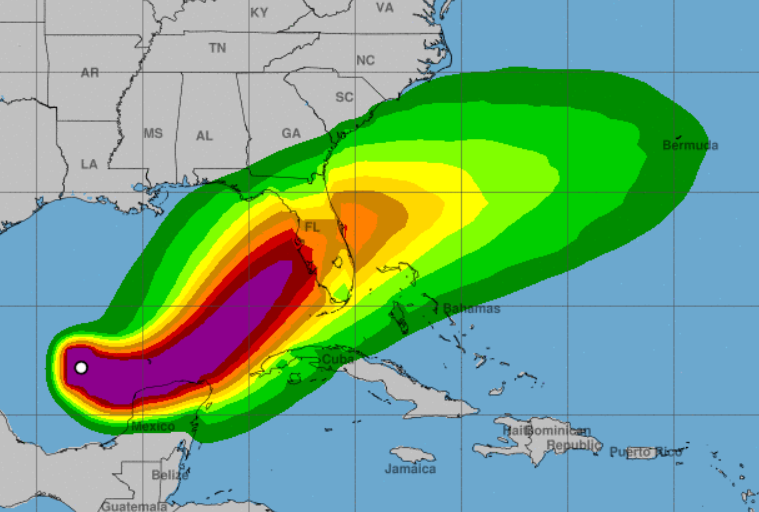A pill for aggression, bacteria that causes diabetes, pharma doesn’t surprise Capt. Obvious, and more
08 Oct 2024
Posted by Andrew Kantor
Surprise diabetes trigger
Could type 1 diabetes be caused by … bacteria? British researchers think so. They found that certain bacterial proteins triggered a response in killer T-cells that caused those T-cells to attack insulin-making cells.
That doesn’t mean diabetes is caused by bacteria, just that in certain circumstances it might be caused by it. The good news is that a person would need a particular gene to be susceptible to this kind of reaction, and that gene is only present in about 3% of the population.
The idea, though, is the important part because it reveals a mechanism for the disease that might be a target for future treatments.
Dockworker strike ending
Good news: The East Coast port strike that would have clobbered the drug pipeline (among others) looks like it’s ended after just one day as the two sides have reached an agreement.
Prescribers still overusing antibiotics
Pediatricians still aren’t getting the message about prescribing antibiotics properly, according to a new study of almost half a million kids in Tennessee.
[It] found that only 31.4% of the antibiotics prescribed in outpatient settings were optimal for choice and duration. Furthermore, 39% of pediatric antibiotic prescriptions were for diagnoses that rarely require antibiotics.
“Optimal” in this case means it was the right drug for the right duration for the kid’s diagnosis, according to the current guidelines. (And those guidelines now recommend shorter durations for several conditions.)
Prescribers got the drug right 38.5% of the time and the duration right 51.3% of the time, but both? That was that 31.4% number.
Caveat: These were Tennessee kids, and Tennessee prescribers give antibiotics to kids 50% more often than the national average. Yikes.
Stay safe
Hurricane Milton is headed toward Florida*, but southeast Georgia is currently close enough to the path that you’ll likely get some weather out of it. Just be prepared, folks — both for yourself and for Florida patients who may have evacuated.

Important: Georgia’s state of emergency — and Georgia Board of Pharmacy Policy #14 — expire on Wednesday, Oct. 9, at 11:59 pm. But with Milton bearing down, it might be reactivated. Stay tuned.
* Unless the government decides to change its course, naturally.
Short Takes
Medicare covers PrEP with Part B
Oral HIV-PrEP drugs had been covered under Medicare’s Part D (sort of), but now CMS has moved coverage to Part B, meaning the injectable meds are available to a lot more people.
Ovarian cancer vax in the works
British researchers just got some more funding to develop a vaccine for ovarian cancer. They think the tools available today are good enough for them to be able to teach the immune system to recognize early signs and attack the tumors.
If successful, OvarianVax could train a person’s immune system to attack any abnormal ovarian cells as they arise, without the person even knowing anything was awry.
If it works — and it’s still a big if — that kind of vaccine would be a Big Deal for women with BRCA gene mutations, who are significantly more likely to develop it.
CMS readies to negotiate
CMS is getting ready for the 2025 drug-price negotiations; by February 1 it’ll reveal the 15 medications it’ll be negotiating on. This time around it’s going to give drug makers a little more time by starting the process earlier.
A supplement against aggression?
People take omega-3 fatty acid supplements to help themselves live longer, and one mechanism at work might be keeping them from hustlin’ people strange to them*.
Neurocriminologists at UPenn found that taking omega-3 supplements can reduce aggressive behavior. And it’s not a small reduction, either. The lead author “estimates this intervention translates to a 30% reduction in aggression—across age, gender, diagnosis, treatment duration, and dosage.”
“Omega-3 is not a magic bullet that is going to completely solve the problem of violence in society. But can it help? Based on these findings, we firmly believe it can, and we should start to act on the new knowledge we have.”
* Even if you do got a two-piece, custom-made pool cue.
Captain Obvious puts her finger on the scale
“Bias found when drug manufacturers fund clinical trials”
Psychiatric drugs are reported to be about 50% more effective in clinical trials funded by the drug’s manufacturer than when trials of the same drug are sponsored by other groups.
(That’s according to research from an Ohio State University.)


